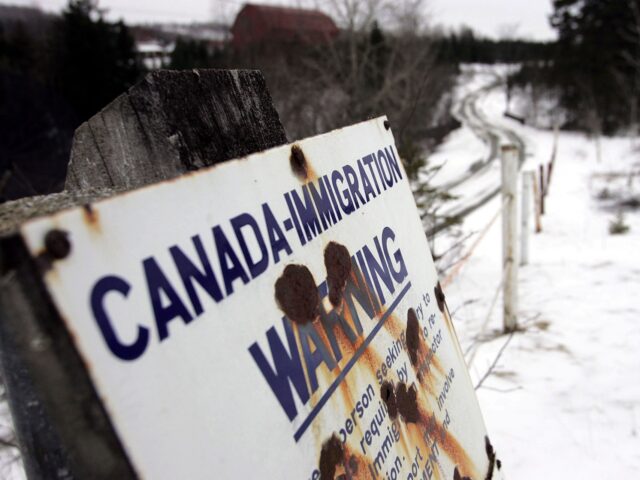Canada’s Immigration Minister Sean Fraser, a member of the Liberal government of Prime Minister Justin Trudeau, has called for even more immigration to Canada despite 2022 seeing a record influx.
Minister Fraser asserted this week that Canada required even more migrants due to a combination of shortages in the labour market and Canada’s low birth rates, claiming schools and hospitals may be in jeopardy in the future.
“If we don’t continue to increase our immigration ambition and bring more working-age population and young families into this country, our questions will not be about labour shortages, generations from now,” Minister Fraser said, broadcaster CBC reports.
Mr Fraser’s call for even more immigration comes after Canada saw a record 431,645 people become permanent residents last year.
The Trudeau government has promised to bring in as many as 1.5 million more migrants over the next three years, or 500,000 per year.
Trudeau’s goals are almost unprecedented among Western countries and equal migration numbers eight times larger per capita than the United Kingdom and four times larger per capita than the United States.
Fraser cited Canada’s demographic situation as a reason for more migration, as Canada’s birthrate sits at just 1.4 children per woman, according to Statistics Canada — well below the 2.1 children per woman replacement rate.
Low birth rates have been used by many other governments in the west to justify high levels of mass migration, including Germany, where last year the number of people with migration backgrounds represented over a quarter of the population.
Last year, German Economy and Climate Protection Minister Robert Habeck made the same argument as Minister Fraser on the subject of labour shortages, stating that Germany also needed to increase migration to fill labour shortages.
Critics of this stance have long argued that it is essentially a pyramid scheme, however, as migrants also age — meaning immigration would have to be increased exponentially on a permanent basis in order to serve as a “solution” to the alleged problem of ageing populations.
Andrew Griffith, previously a senior official at Immigration and Citizenship Canada, noted that mass migration will likely have an effect on social services and housing, saying: “There’s no assessment that I have seen of the impact of these targets on housing affordability and availability, no assessment of these targets in terms of additional pressures on health care.”
Last year, Statistics Canada revealed that as nearly a quarter of the Canadian population were born abroad, and that this number would increase to a third of the population by 2041.
Some, including the NGO the Century Initiative, have called on Canada to open the gates to migrants to rapidly increase the population of Canada to at least 100 million by the end of the century — far more than double the current population of roughly 38.25 million.
“Our population is ageing, we’re having fewer children, and our workforce is shrinking. If we stay the course, Canada’s annual GDP growth will decline, along with our influence on the world stage,” the NGO has argued.
The extent of the change already achieved in Canada is such that Trudeau felt able to declare in 2015 that it was “the first postnational state”, with “no core identity, no mainstream” anymore, despite having long possessed a clearly Franco-British character and identity.

COMMENTS
Please let us know if you're having issues with commenting.